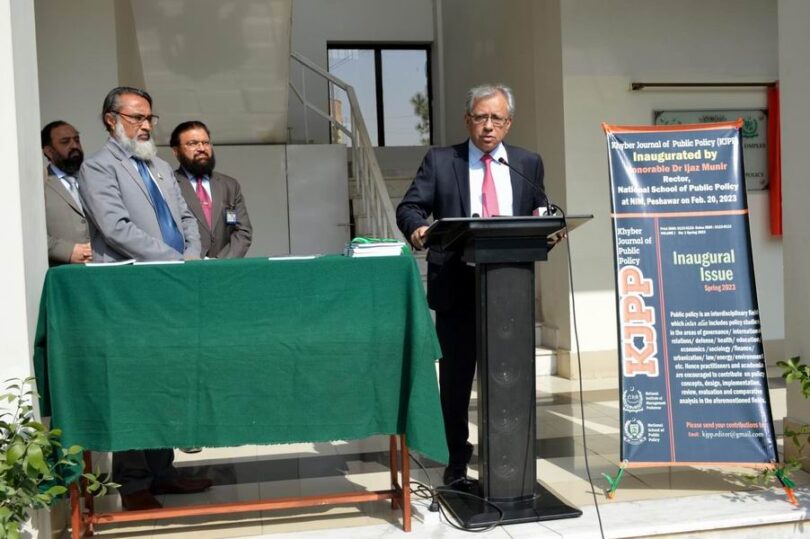F.P. Report
PESHAWAR: Rector, National School of Public Policy (NSPP), Dr Ijaz Munir here Monday said that bureaucracy must adhere to the core values of transparency, impartiality and integrity, which are pre-requisites for an effective public service delivery and good governance.
“Public servants will have to adapt themselves to the changing world and its associated challenges,” he said while addressing the joint session of the officers from different national and provincial groups and cadres including senior management course, mid-career management course, junior command course of KP police and revenue officers of KP at NIM Peshawar.
In his keynote address, Dr Ijaz Munir said the emerging requirements were compelling us as a nation to transform the civil service by equipping it with new skills and competencies coupled with specific focus on significant attitudinal changes and behavioral adjustment to resolve the economic challenges.
“This transition to me is inevitable,” he said, adding institutional performance was dependent upon the quality of human resource. The multifaceted challenges could be best overcome through creating better human resource and institutional transformation with the spirit of high standards of professionalism and the requisite skills.
While highlighting the role of NSPP and its constituent units, the Rector pointed out that NSPP, being a premier national institution in the country for in-service training of the civil bureaucracy, is focusing on knowledge, skills and attitudes, which enable the trainee officers to know about the modern management concepts, polish their requisite skills and develop aptitude for evidence-based decisions.
ICT interventions in public service contribute to better service delivery, therefore, the training design of NSPP also gives greater value to develop the technical skills of the participants through modern techniques. Apart from the different modules on important public policy areas, the best available resource persons from public and private sectors are engaged to impart knowledge and share their expertise with the trainee officers.
Dr Ijaz Munir stressed on civil servants to give time to people visiting their offices for resolution of their problems and deal with them with empathy and politeness.
He observed that the civil servants should not look for the past precedents rather set their own precedents by addressing people’s issues under the law swiftly, adding the civil servants can revisit any rule in case it creates hurdles in the way of public service delivery.
He advised the civil servants to take initiatives and make themselves an asset of the organization rather than liability, adding they would certainly get the choice posting once they prove their metal before the government.
Dr. Ijaz Munir thanked the Director General NIM/PARD/PPSA Cap (R) Usman Gul and the management and appreciated the efforts of NIM Peshawar for imparting quality training to the public servants from the federal government, the four provinces including AJK and GB. Earlier, he inaugurated the newly launched Khyber Journal of Public Policy which is an initiative of NIM Peshawar.
Ijaz Munir said that launching such a prestigious journal was a laudable initiative of NIM Peshawar that will be a source of disseminating the research outputs of the officers through publications of their research papers on public policy and governance milieu in the country.
Dr. Muqeemul Islam Soharwardy, Chief Instructor MCMC briefed the chief guest on the objectives of the journal and its significance in terms of a forum for discourse on public policy issues in the country.
Dr. Ijaz Munir also inaugurated the completion of NIM Complex and visited the newly completed infrastructure schemes and facilities for trainees. He also planted a sapling at the lawn of the NIM.
Director General Usman Gul thanked the Rector NSPP for visiting NIM Peshawar. Usman Gul while appreciating the cooperation of NSSP said such training programs would immensely help in capacity building of the under training civil officers and enhance their professional competence.







